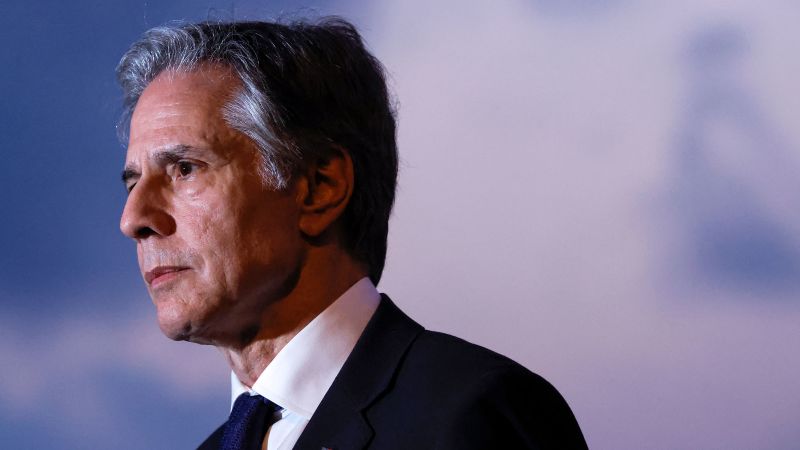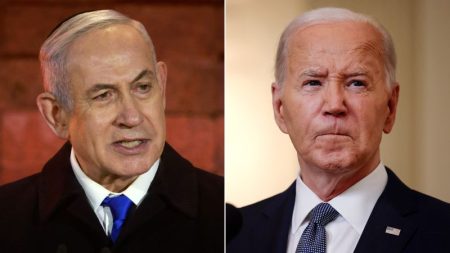US Secretary of State Antony Blinken will travel to Israel on Saturday, the State Department announced Friday, amid urgent efforts to finalize an elusive Gaza ceasefire and hostage deal.
Blinken’s visit comes on the heels of an initial round of high-level negotiations that wrapped up in Doha on Friday. According to a joint statement from the three main negotiators — the United States, Qatar, and Egypt — the US presented a “bridging proposal” meant to resolve the key gaps remaining between Hamas and Israel in a way “that allows for a swift implementation of the deal.” The statement did not provide specific details about the proposal.
“Secretary of State Antony J. Blinken will travel to Israel on August 17 to continue intensive diplomatic efforts to conclude the agreement for a ceasefire and release of hostages and detainees through the bridging proposal presented today by the United States, with support from Egypt and Qatar,” State Department deputy spokesperson Vedant Patel said in a statement.
“This proposal would achieve a ceasefire in Gaza, secure the release of all hostages, ensure humanitarian assistance is distributed throughout Gaza, and create the conditions for broader regional stability,” he said.
“Secretary Blinken will underscore the critical need for all parties in the region to avoid escalation or any other actions that could undermine the ability to finalize an agreement,” Patel said.
Blinken’s trip to Israel follows what has become an established pattern from the top US diplomat of traveling for in-person meetings to project high-level public pressure around the need for an agreement. US officials have also consistently argued that a key factor in shifting the Israeli government’s positions related to Gaza has been persistent — and in-person — American engagement.
Blinken is expected to meet with key Israeli government officials while in the country.
The top US diplomat’s trip follows a parade of other high-level US officials traveling to the region, including CIA Director Bill Burns and top National Security Council official Brett McGurk. The flurry of travel comes as the US and its allies seek to deter a potential retaliatory response from Iran or its proxies for the killing of a top Hamas official in Tehran weeks ago. There are strong concerns that such a response could spark a widespread war.
Read the full article here















